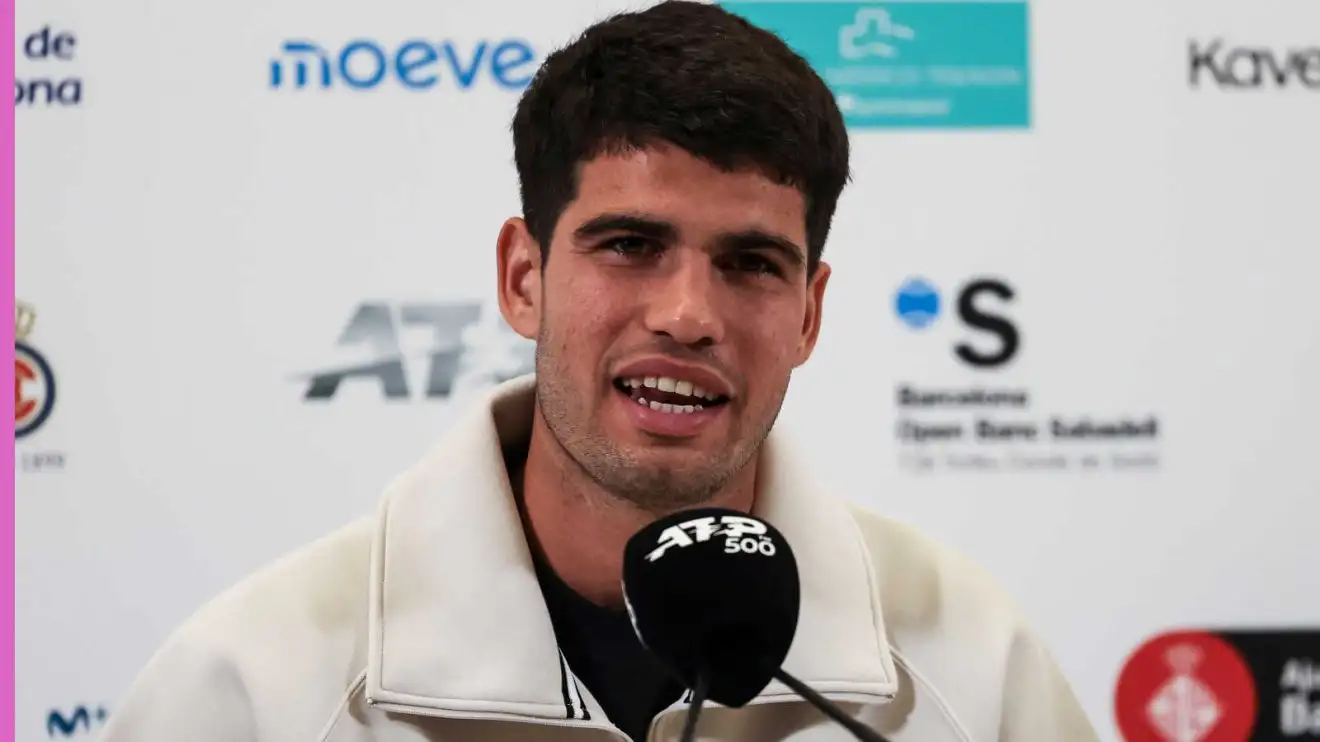
Fresh off his commanding victory at the Monte Carlo Masters and a quarterfinal berth in Barcelona, Carlos Alcaraz has ignited a firestorm of debate within the tennis world by openly criticizing the ATP’s controversial decision to extend most Masters 1000 tournaments to a 12-day format. The 21-year-old Spaniard, now ranked world No. 2, delivered a candid assessment of the scheduling change, arguing that it burdens players and dilutes the sport’s intensity, all while failing to deliver the promised rest. His remarks, made during a press conference in Barcelona, resonate with a growing chorus of players and fans nostalgic for the traditional one-week format.
Alcaraz, whose meteoric rise has seen him clinch six Masters 1000 titles, including his recent Monte Carlo triumph over Lorenzo Musetti, didn’t mince words. “I prefer the one-week ones. It’s much better for tennis,” he declared, emphasizing the immediate high-stakes competition that defines shorter tournaments. “From the start of the tournament or the second round, we see high-level matches.” His victory in Monte Carlo, a rare Masters 1000 event that retains the one-week structure, underscored his point. There, Alcaraz navigated a gauntlet of tough opponents—Francisco Cerundolo, Daniel Altmaier, Arthur Fils, Alejandro Davidovich Fokina, and Musetti—in just seven days, showcasing the relentless drama that compact schedules produce.
The extended format, now applied to seven of the nine Masters 1000 events, including Indian Wells, Miami, Madrid, Rome, Canada, Cincinnati, and Shanghai, was introduced to align these tournaments with Grand Slam-like prestige, offering larger draws and more rest days. However, Alcaraz dismantled the notion of rest, revealing the hidden toll on players. “Some might think that during two-week tournaments you get rest days, but that’s not the case,” he said. “You train, you have to mentally prepare for the match, plan for it.” The prolonged schedule, he argued, keeps players away from home longer, piling on mental and physical strain while forcing them to fulfill promotional and sponsorship obligations from day one.
This isn’t the first time the format has faced scrutiny. Players like Holger Rune, Marcos Giron, Jessica Pegula, and Stefanos Tsitsipas have echoed Alcaraz’s sentiments, lamenting the lack of early-round marquee matchups and the fatigue of extended commitments. Fans, too, have expressed frustration, noting that the first week of these tournaments often lacks star power, with top seeds entering later and matches played before sparse crowds. Monte Carlo and Paris, the last bastions of the one-week format, serve as reminders of a bygone era when every day brimmed with intensity, a quality Alcaraz believes is essential to tennis’s appeal.
For Alcaraz, the issue is personal. After a “difficult month” marked by a semifinal loss to Jack Draper at Indian Wells and a shock second-round exit to David Goffin in Miami, he found solace in Monte Carlo’s traditional setup. “It’s been a really difficult week with a lot of difficult situations,” he admitted, reflecting on the external pressures and high expectations he faces. The one-week format, he suggested, allowed him to channel his focus and rediscover his rhythm, culminating in a 3-6, 6-1, 6-0 rout of Musetti. His coach, Samuel Lopez, reinforced this mindset, urging him to “stay positive” and “face the difficulties,” advice that proved pivotal.
As Alcaraz prepares to defend his French Open title, his critique raises broader questions about the ATP’s priorities. The extended format, designed to boost revenue and democratize access for lower-ranked players, risks alienating the sport’s biggest stars and most passionate fans. With the clay season in full swing, Alcaraz’s words carry weight, signaling a potential reckoning for a calendar that many believe is overstretched. Whether his outspoken stance sparks change remains to be seen, but one thing is clear: “Carlitos” is not just a champion on the court—he’s a voice demanding a better future for tennis.
Leave a Reply